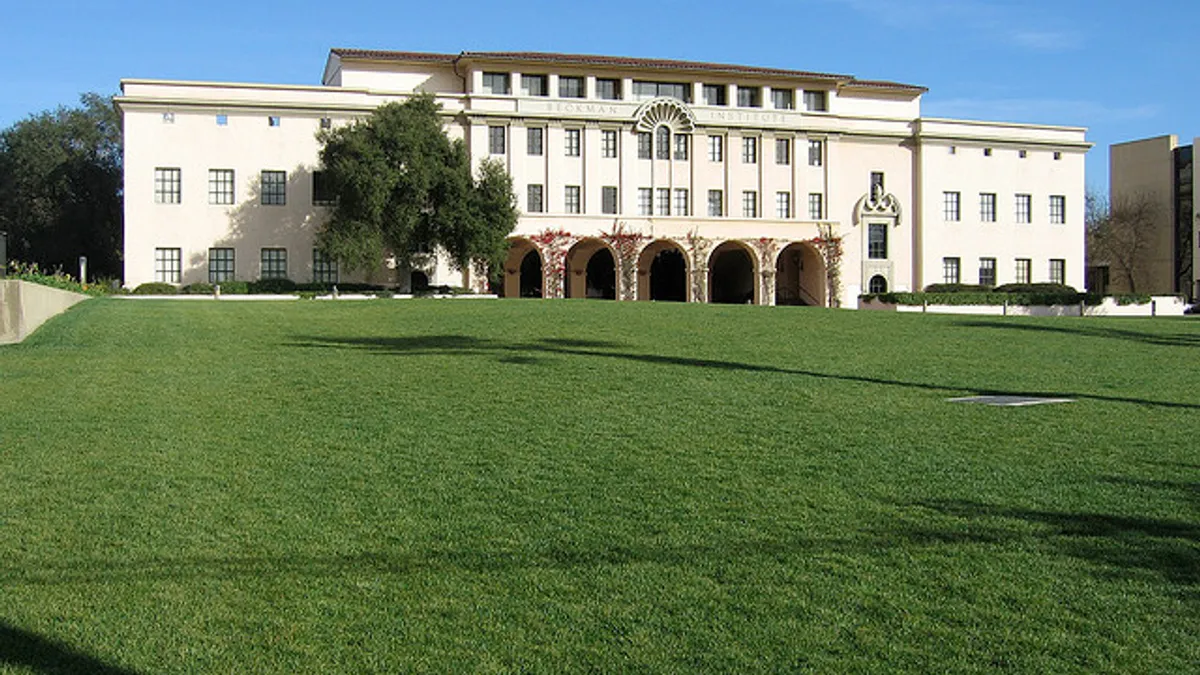Dive Brief:
- The California Institute of Technology announced Thursday that it's receiving its largest gift ever, $750 million meant to support climate research, from the owners of The Wonderful Company, a food and beverage firm.
- Caltech will use $400 million from the gift to set up an endowment for future environmental research, while $250 million will be used for scaling current research and $100 million will go to opening a new 75,000-square-foot center for energy and sustainability research.
- The new building will include a computing center and teaching labs, which all first-year students will be required to attend. Caltech will also alter its core courses to include sustainability science and engineering.
Dive Insight:
The gift is one of the largest private donations to a U.S. academic institution in history, second only to former New York Mayor Michael Bloomberg's $1.8 billion pledge last year to Johns Hopkins University, his alma mater.
The donation will allow Caltech to "tackle issues of water, energy, food, and waste in a world confronting rapid climate change" and "mount efforts at scale" to "advance solutions to society's most pressing problems," said its president, Thomas Rosenbaum, in the announcement.
And it comes during a period of record levels of giving to colleges and universities.
In the 2017-18 academic year, charitable giving to higher education reached a record $46.7 billion after nearly a decade of steady growth in the sector, according to an annual report from the Council for Advancement and Support of Education.
During that decade, the U.S. government's spending on research and development as a proportion of the nation's gross domestic product declined slightly. That has prompted some universities to turn to private donors to fund their climate-related research.
In 2016, for example, Columbia University used $3.1 million to launch the Center for Climate and Life, which raises research money from private donors.
Through the center, the university has been able to support researchers' salaries and fund more "high-stakes, high-reward research" that the federal government typically doesn't, said Peter de Menocal, its director, in an interview with Education Dive.
"This new model, it's never going to replace federal funding, but that's not the point," he said. "It's meant to be a science accelerator." Last year, the center received one of its largest gifts yet, a joint $2 million from two alumni, to research climate change and its impact on oceans.
Meanwhile, other universities may be feeling the effects of state funding declines. Take the University of Alaska System, which is grappling with a $70 million budget cut that will be spread out over three years.
The bulk of the university's research funding is provided by the federal government, so it's somewhat insulated from the cuts, said Hajo Eicken, the director of the International Arctic Research Center at the University of Alaska Fairbanks, in an interview with Education Dive. However, the reductions will likely limit the university's ability to help the local community "prepare for (climate) changes that are already underway," he added.
The cuts also sent a message that the state may not value higher education, Eicken said. "That's potentially demotivating and does require us to look for other partners," he added. "Some of those clearly are going to be in the private sector, whether it's corporate or individual donors."
Similarly, de Menocal expects private funding will be critical to future climate research. "The government is able to do some work on this," he said, "but really it's the philanthropy that lets you approach this with the urgency and scale that's needed."











